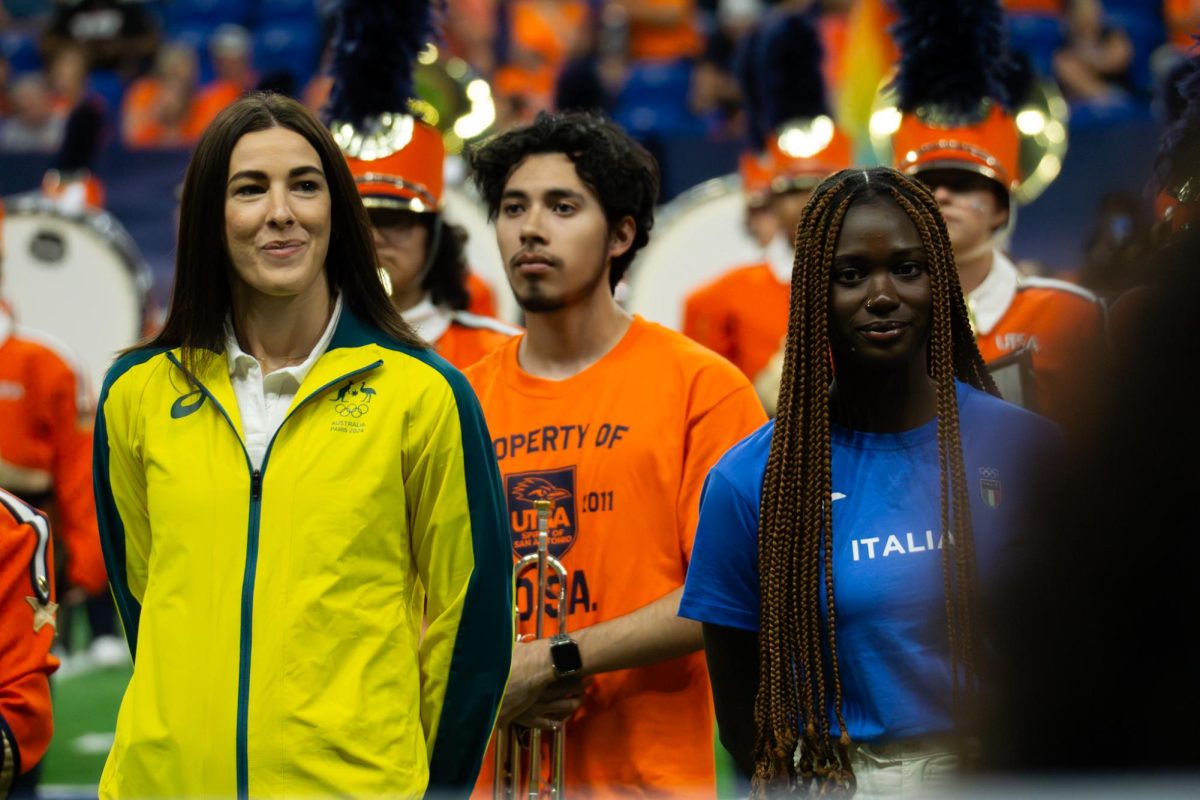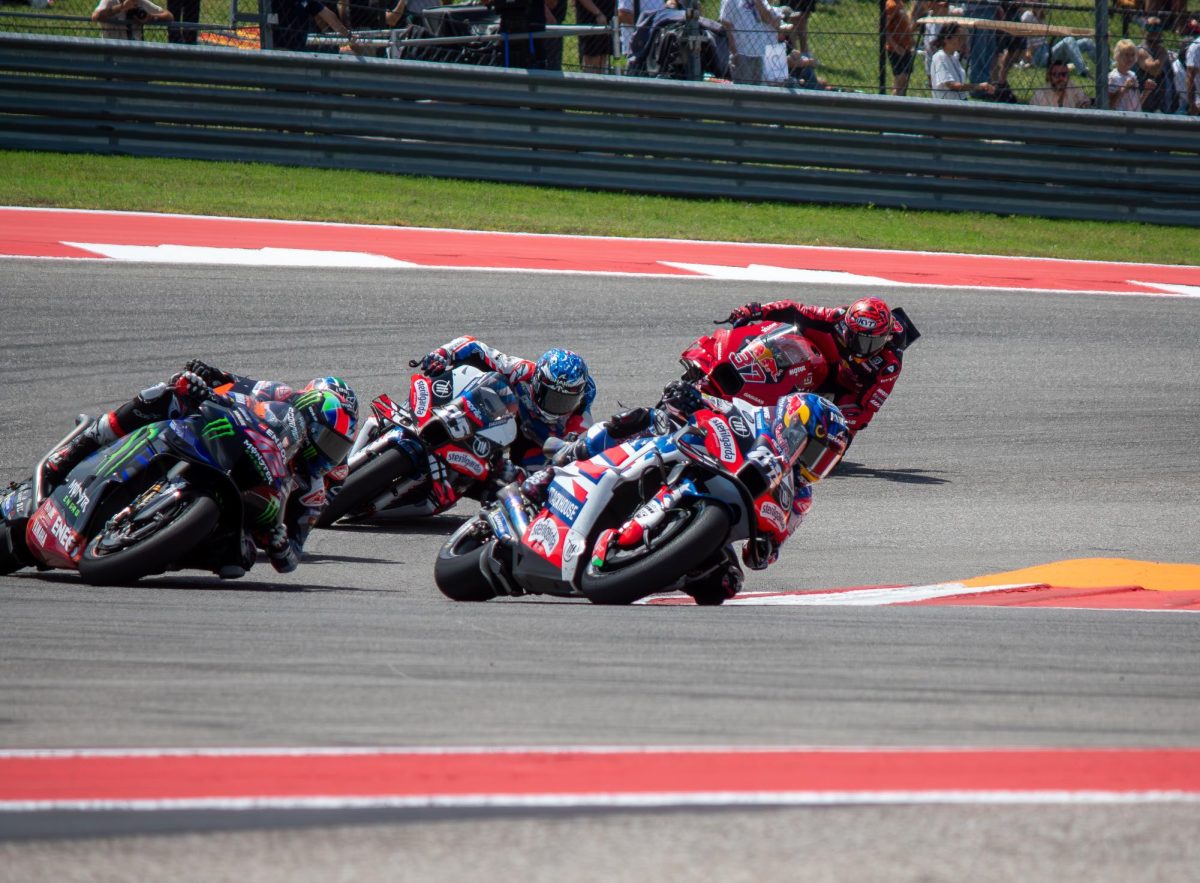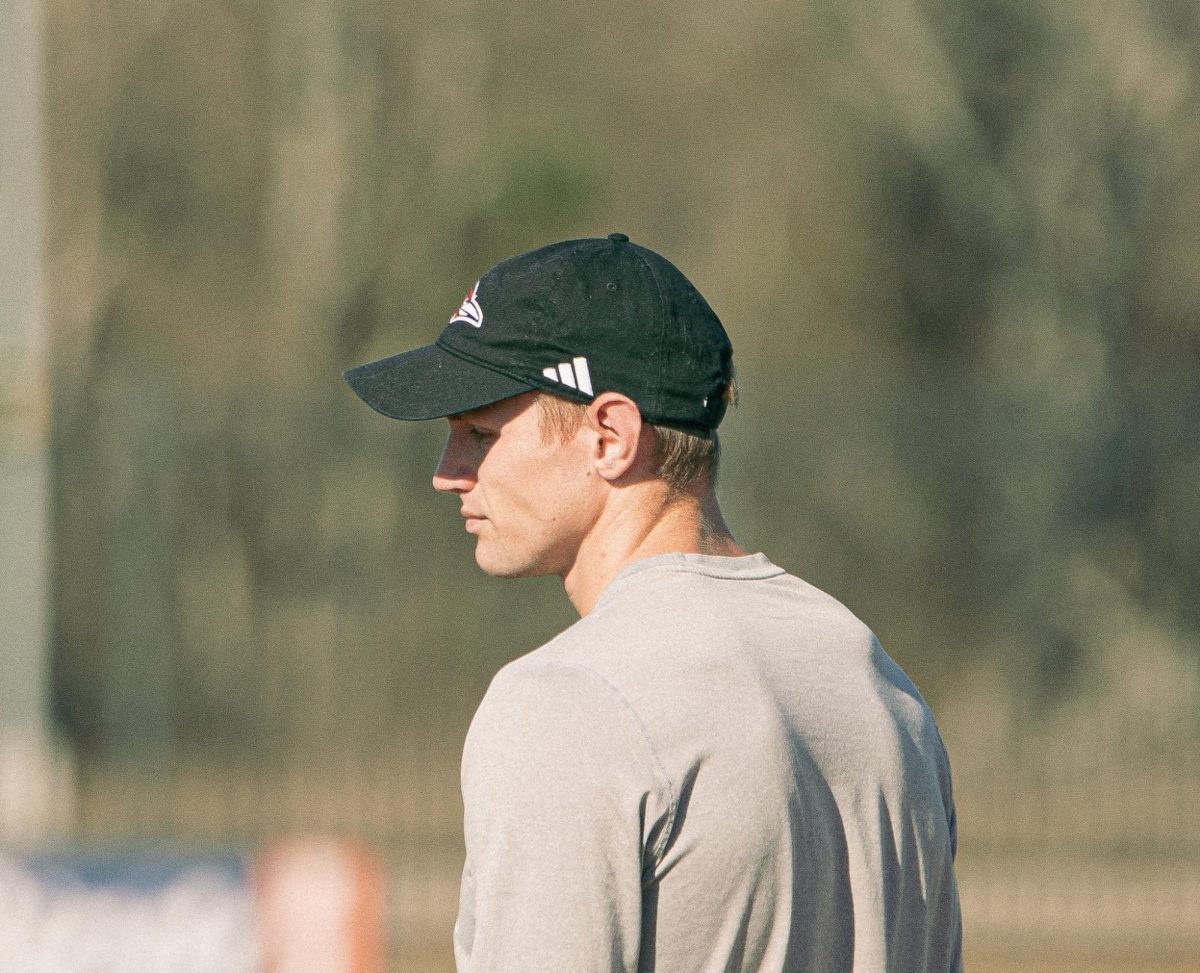Paris has successfully hosted the Olympic games for the third time in 100 years. 206 countries and 10,500 athletes to represent them remind us of the unthinkable feats that humans can accomplish. But the Olympic games transcend sports and athletes; it represents global unity. The games are not just about competition but rather a celebration of diversity amongst cultures and the traditions that develop within them. The Olympics serve as a reminder that despite our differences, we are part of one global community united by our shared humanity. This is something that three Roadrunners got to experience for the first time ever this summer.
Diego Aldo Pettorossi, Alanah Yukich and Fatoumata Kabo, who represented their home countries of Italy, Australia and Italy respectively, all qualified and competed in the Paris Olympics track events this summer. Though their journey is one that very few athletes, let alone people, will get to experience in their lifetime, it was not an easy one to take.
Pettorossi began his collegiate career at Angelo State where he and a friend of his ran track. He realized that his skill level was higher than that of his fellow track teammates and decided to bet on himself and enter the transfer portal. From there, he ended up at UTSA which is where he met one of his coaches, three-time Olympian Kareem Streete-Thompson, associate head coach of sprints, jumps and relays.
“He really was the first person to say he believed in me,” Pettorossi said. “He said ‘you have no idea where you can go’. It made such an impact on my mindset, I had bigger goals after that.”
The Olympic trials were no new feat for Pettorossi. He attempted to qualify for the Tokyo Olympics back in 2021 but missed the cut by one place, thus his dreams were put on hold, yet he was determined to make his debut appearance in Paris.
“After I realized Tokyo wasn’t going to happen I thought I can definitely aim for Paris,” Pettorossi said. “I was so close already, I did all the national events and I did a World Championship, I had to start working towards Paris.”
As Pettorossi started working towards his goal of qualifying for the Paris Olympics he also had to stop working in other parts of his life. He quit his job and sold his car so that he would have more time to devote to his training as well as the money to fund it.
“I sold everything, it was very emotional for me,” Pettorossi said. “As an international athlete, I gave so much up to move to the U.S. and live this American dream, but I think it was the right thing to do.”
“When I raced to qualify I needed to wait like a week or two to see the rankings. I was 50th place and only the first 48 qualified for the Olympics. ‘I was like…no no no…’ I didn’t sleep for three days, I couldn’t believe I was going to miss the Olympics by two places, but then two people withdrew, it was meant to be!”
Pettorossi had to travel to different countries in Europe in order to compete in some of the qualifying races such as Madrid and Poland. Though, if he wouldn’t have gone to those races he would not have made the cut for the Olympics, nor would he have been able to reconnect with his fellow classmate and track athlete, Yukich.
“I was in school with Diego, it was cool to see him at some of the meets leading up to the Olympics,” Yukich said. “We kind of got to be a part of each other’s journey before we actually qualified and then to have us both qualify was really, really cool. And that’s what I love about UTSA, and there’s so many internationals on the team.”
Yukich traveled through five countries in 16 days to compete in as many races as she could to qualify for the Olympics. Three of those races were over the course of three days, all in different countries. Pettorossi said that Yukich had kept him in the loop of her race results and he could not believe that she just kept going. Pettorossi recalled Yukich telling him, “I’m doing everything,” and she did.
She discussed that while student-athletes have a certain path laid out for them, there is no clear path after graduation. Just like Petorossi, Yukich had to make sacrifices when she decided to stay in San Antonio and train. She did not want to leave her athletic career behind when she graduated with her Masters from UTSA so she gave herself a year.
“I felt that I had more to give. I didn’t know if the Olympics was a thing for me, but I knew that I wasn’t finished with track just yet,” Yukich said. So I told myself, ‘I’m going to give myself one year to dedicate everything to my sport and into this lifestyle’.”
“Being International, it’s a lot harder as well because you’ve got visa regulations, people don’t really know who you are, those kinds of things. So it was definitely a learning curve,” Yukcih said. “So I just learned to invest in myself because at the end of the day, if you want to continue this, you have to invest in yourself. So that’s what I did.”
Every athlete, no matter the level they compete at, must make sacrifices as they dedicate their time, money and body to their sport. Less than 6% of athletes that competed in the Olympics report sponsorship fundings. A few months ago, Yukich started a GoFundMe as an outreach to raise money for her Olympic journey, and people answered.
“Most people that were donating were just random people, which was crazy to me, that you know there are people out there that want to help you and support you and asking for help isn’t bad. I learned that,” Yukich said.
When you choose yourself, you have to give up family time, time with friends, home visits, etc. and both Pettorossi and Yukich expressed gratitude for the people in their lives that supported them through this. Pettorossi expressed his gratitude for his family’s and his long-distance girlfriend’s support and Yukich said that both her parents and siblings flew to Paris to come support her as she competed.
When it comes time for an athlete to compete, they not only have to be physically prepared but mentally prepared. Olympians compete on the largest platform when they compete as they are watched by millions of spectators.
“You really just try to give your best and see how far you can go, and that’s what I did,” Pettorossi said. “I’m motivated, I’m disciplined. I show up to the track everyday to do the same workout. There is no short cuts, you cannot really skip a day, you can’t skip a week, you can’t break your diet. But in the moment of the race, it’s just me. It’s my lane, it’s my race.
Yukich felt her most confident when she ran her repechage race.
“I was like, ‘You know what? I’m having fun. Like, who cares?’ No one expected me to even be here so to be here in itself was just an absolute privilege,” Yukich said. “I know when I have fun I’m myself, and that’s what happened. It was my race.”
Both Pettorossi and Yukich felt that the realization of competing in the Olympics hit them at different times. Since he did not get to take part in the opening ceremonies, and despite experiencing life in the famed village, Pettorossi said that being at the Olympics did not really hit him until he took his first two steps inside of the Stade de France.
“I saw 80,000 people that were just there to see the race, that was mind blowing. I realized ‘this is the Olympics’. That is something I will never forget.”
For Yukich, making it to the semifinals was when it hit her. Making it to the semifinals was one of her goals when she got to the Olympics which is why she was shocked when she barely made the cut by a hundredth of a second.
“That race probably wasn’t my best technical race, but it was the race I was most present in,” Yukich said. “I was soaking it up, and I was so proud to be there and to kind of be proud of the journey I was on.”
Despite their hardships and races, the former Roadrunners made it to the Olympics and were able to experience everything the Summer games had to offer. Between the sweet morning songs the Fijians sang every morning, making new friends, exchanging pins and the viral Olympic food hall chocolate muffins, the Olympic experience is like no other.
“There is this energy that you cannot really feel anywhere else because you’re almost forced to feel it all, you really have to share that space. The energy is contagious,” Pettorossi said.
“That’s what I loved about the athlete village, we could connect with other players and other people’s sports and kind of get to know them, I think that was a cool atmosphere,” Yukich said.
As far as UTSA track goes, the program is the only one at UTSA to produce Olympians yet gets less recognition than popular sports such as football or basketball.
“I think the program has so much potential,” Petorossi said about UTSA track. “With the quality of the coaches, if you have the motivation, the discipline, the goal – UTSA is a place I would recommend to anyone in track.”











Riley Carroll • Sep 4, 2024 at 1:10 pm
Great coverage, Haley!